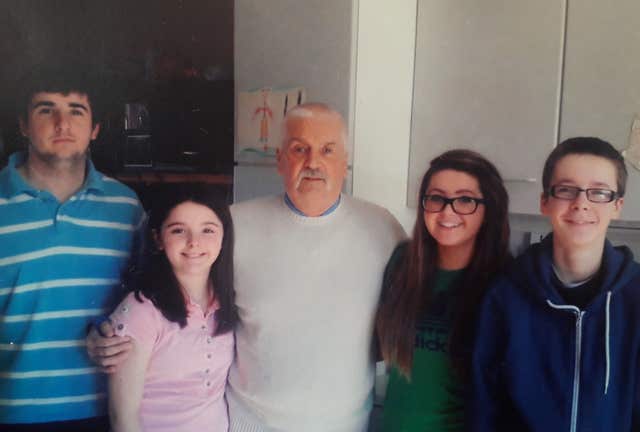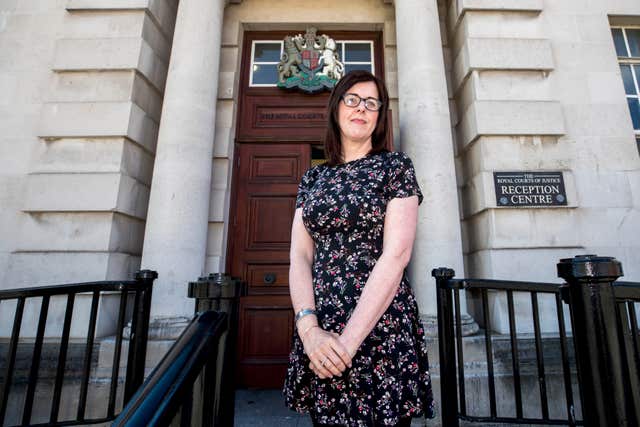An unmarried mother behind a legal battle to access widowed parent’s allowance has accused the Government of treating her grieving children as “insignificant”.
Siobhan McLaughlin, 46, said her case, being heard at the Supreme Court sitting in Northern Ireland for the first time, was never about her but about justice for her children.
The special needs classroom assistant from Armoy, Co Antrim, was with her partner John Adams, a groundsman, for 23 years and they had four children – Rebecca, 15, Billy, 16, Lisa, 21, and Stuart, 23.
Following Mr Adams’s death from cancer in January 2014, Ms McLaughlin had to take on an evening job after being refused widowed parent’s allowance because the couple were not married nor in a civil partnership.

The Supreme Court heard her latest application for judicial review on Monday.
Her lawyer, Frank O’Donoghue QC, asked the court: “Is there a defensive aspect to this legislation, holding up Ms McLaughlin as an example to what might happen to you if you don’t get married?”
Mr O’Donoghue said Ms McLaughlin should be treated equally to a married couple with children after the death of the breadwinner.
“The court should require the state, as we prepare to enter the third decade of the 21st century, to justify this obvious difference in treatment, beyond the rather simplistic and rigid explanation that one widow was married and the other was not,” he said.
“As a bare minimum, entitlement to widowed parent’s allowance on the part of cohabiting unmarried parents and children is required.”
Mr O’Donoghue said the benefit is not for the married couple but for the survivor and children and claimed there is no evidence proving current restrictions promote marriage.
The court also heard from Helen Mountfield QC, for the Child Poverty Action Group, who argued the ruling is incompatible with international law and “penalises” children whose parents are not married, treating them as “less worthy”.
Tony McGleenan QC, for the Department for Communities, argued against this.
He said the eligibility stems from having children but the benefit is not for them, as it is described as a benefit for the survivor.
He said marital status is a “non-suspect ground of discrimination” as it is not an inherent characteristic and can be changed, adding that benefits of this type “should make marriage more attractive” to some cohabiting couples.
Lady Hale said a judgment will be made at a later date but warned the ruling sought does not oblige the Government to act.

She said: “This case was never about me. I would love to be recognised as a widow but I accept in the eyes of the law and the Government that I am not.
“What I wasn’t prepared to accept was how the Government viewed my children – how they could treat my grieving, bereaved children as insignificant.
“I am such a private person but to sit and accept that this is how it is made me say, ‘No, this is wrong’.
“I want to look my children in the eye and say it is the Government at fault here, not you, and because of this I have tried to rectify this for you.”






